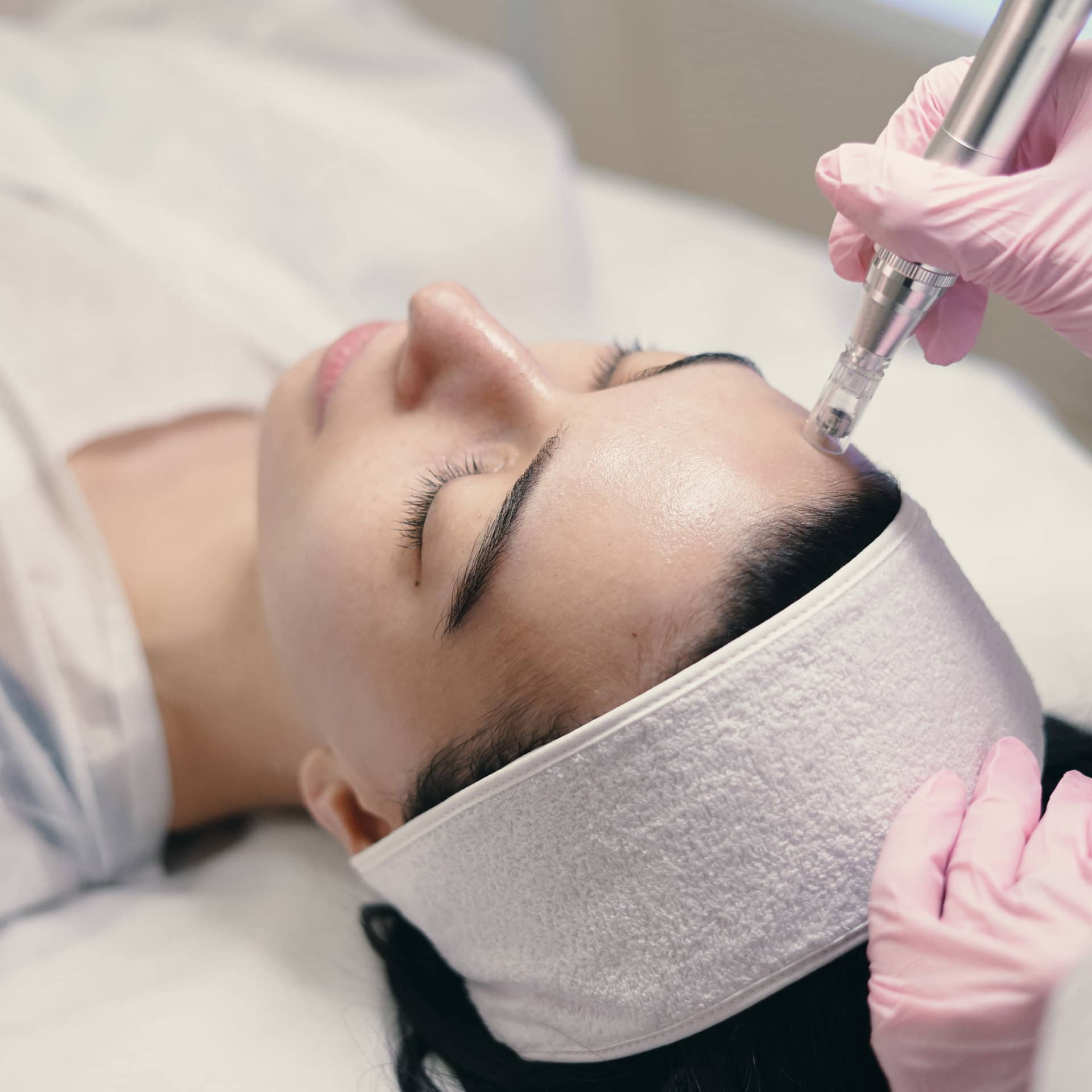Skin Allergy Patch Testing
An accurate diagnosis, a treatment plan that works educational information to help you manage your disease feel better for a better skin.
When the skin comes into contact with a substance to which it is allergic or hypersensitive, its reactions can include swelling, redness or blisters, itching, or a burning sensation. In order to get the right skin care to clear up these symptoms, it’s important to first determine what type of allergen the skin is reacting to. Skin allergy patch testing from our Harley Street practice is a non invasive way to accomplish this.
If you’d like to learn more about skin allergy patch testing, please don’t hesitate to contact us on line today or call +44 (0)2075 809095. Dr Philippe Hamida-Pisal, practices the latest techniques at the forefront of skin care to give you the skin health that you deserve.
About this treatmentIn summary
-
Allergy skin tests are currently performed percutaneously using a variety of skin-prick tools.
-
The tests are performed to detect several environmental allergens, including dust mites, feathers, moulds, pollens, animal allergens, in addition to related food allergies.
-
The only medication that can be tested by routine skin testing is penicillin.
Frequently Asked Questions
WHAT IS ALLERGY?
An allergy is an abnormal reaction by a person’s immune system against a normally harmless substances that we are commonly exposed to.
Allergies can be respiratory (seasonal allergies, allergy to birch or tree pollen, allergy to grass or ragweed, allergies to cats, dogs, dust mites, mold, etc.) and generally trigger rhinitis (nasal congestion, runny nose, sneezing), conjunctivitis (itchy or runny eyes) and/or asthma (coughing, wheezing, shortness of breath and oppression of the chest). Respiratory allergies are different from food allergies (allergy to milk, eggs, soy, peanuts, wheat, nuts, fish, crustaceans, etc.), which can trigger more severe reactions, including anaphylaxis. Not to be overlooked are allergies to vespids (bees and wasps).
IS THERE A CONNECTION BETWEEN ALLERGIES?
That’s an excellent question that is rather complex and the subject of continuing scientific research.
On the one hand, eczema and atopic dermatitis are suspected gateways for food allergies in certain people. On the other hand, for many patients with allergies, there appears to be a natural progression of their allergic condition. This sequential development of various allergic conditions and symptoms is referred to as the atopic or allergy march. It highlights a tendency for allergic patients to suffer initially from eczema (atopic dermatitis) then food allergies and subsequently, respiratory allergies and/or asthma. We do know that patients with respiratory allergies are at increased risk of developing other respiratory allergies and/or asthma, particularly if not treated with immunotherapy. Oral allergy syndrome, also called “pollen-food allergy syndrome”, is a form of food allergy that is related to one or more respiratory allergies.
CAN WE BECOME SUDDENLY ALLERGIC? WHY?
A person with no history of allergies can indeed experience sudden onset of a respiratory or severe food allergy.
More usually, allergic patients will come with past history of eczema (atopic dermatitis), food allergy at a young age, asthma or perhaps a positive familial history of allergies. Yet more and more commonly are we seeing patients developing allergies “out of the blue”. Unfortunately, science does not yet fully understand the mechanisms involved to explain why this happens. Several theories attempt to explain the sudden development of a specific immunologic reaction to a normally harmless substance. A recent and controversial theory proposed by Polly Matzinger (www.medscape.com) explains that immune responses are triggered by ‘danger signals’ released by the body’s own cells. In other words, traumatic events or even psychological factors could contribute to the development of an allergic response to a substance the immune system had formerly reacted ‘normally’ to.
DO YOU TEST FOR ALLERGY TO MEDICATION?
Unfortunately not… not at this point!
ARE ALLERGY TESTS PAINFUL?
Parents will be pleased to know that all of our products are extremely gentle, even for young children.
Our nurse has extensive experience in paediatric hospital and allergy clinic settings. Our entire staff will ensure that your ENT or allergy test is a positive experience. Babies (big or small!), timid toddlers or worried parents will all benefit from our staff’s care and expertise. We are using products state-of-the-art testing products specifically making use of the neurological gate-control theory that involves the activation of nerve cells that block pain transmission, resulting in pain suppression. The device’s touch post activates these nerve cells to inhibit pain, while the refined points provide well-defined wheals with very little tissue trauma.
Our prices
Please feel free to download our price list
and for further information contact us on +44(0) 20 7580 9095 or by email at contact@phphaesthetic.com
Download the price listBefore / After treatment
To see our fantastic results, have a look at our before and after gallery.
Discover our galleryFeel your best, the French Touch will enhance your natural beauty!
Learn more about Dr Philippe Hamida-Pisal
RELATED TREATMENTS


Facial Rejuvenation
Mesotherapy is a safe, natural alternative to invasive cosmetic procedures.

Massage
PHP Aesthetic-Wellness massages involve highly precise movements carried our by expert hands.